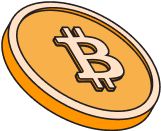How to Choose an Exchange to Buy and Trade Near Protocol
These include the platform’s security, fee structure, payment methods, and user accessibility. Additionally, the exchange’s reputation within the NEAR trading community and its liquidity can significantly affect your trading experience. By thoroughly evaluating these elements, you can select the exchange that best meets your trading needs.
Security
Security is paramount when trading cryptocurrencies like NEAR. Ensure the exchange you choose has strong security measures in place, such as two-factor authentication (2FA), encryption, and cold storage for digital assets. Additionally, it's important to consider the exchange’s history with security incidents and its reputation for safeguarding user funds. A secure exchange will give you peace of mind when trading NEAR.
Accessibility
Accessibility includes both the user-friendliness of the platform and its availability in your region. A well-designed, intuitive interface can make the trading process more straightforward, especially for beginners. Additionally, confirm that the exchange is accessible in your country and supports your local currency, as this will make it easier to deposit and withdraw funds.
Liquidity of Crypto Assets
Liquidity is essential for trading NEAR because it affects how quickly and at what price you can buy or sell the asset. High liquidity on an exchange means that you can execute trades faster and with less slippage, especially during times of market volatility. Choosing an exchange with substantial trading volumes in NEAR pairs ensures a smooth and efficient trading experience.
Support
Good customer support is crucial when trading on any exchange. If you encounter issues with your account or transactions, having access to responsive and knowledgeable support can save you time and frustration. The best crypto exchanges offer multiple support channels, such as live chat, email, or phone, and check reviews to gauge their effectiveness.
Trading Fees
Trading fees are a critical consideration when selecting an exchange for NEAR. These fees can impact your overall profitability, especially if you trade frequently. Exchanges typically charge either a flat fee or a percentage of the trade value. Some platforms may offer lower fees for using their native tokens or for high-volume trading. Carefully comparing these fee structures across different exchanges can help you minimize costs.
Payment Methods
The availability of payment methods is another key factor to consider when trading NEAR. Some exchanges support a wide range of payment options, including bank transfers, credit/debit cards, and cryptocurrency deposits, while others might be more limited. Choosing an exchange that offers convenient and cost-effective payment methods can enhance your trading experience by reducing transaction times and fees.
User Interface
The user interface of an exchange plays a significant role in your overall trading experience. A user-friendly platform should make it easy to navigate the exchange, execute trades, and monitor your portfolio. Whether you're a beginner or an experienced trader, a well-designed interface helps you focus on trading rather than struggling with complex features.
Reputation Amongst NEAR Traders
The reputation of an exchange within the NEAR trading community can offer valuable insights into its reliability and performance. Researching reviews and feedback from other traders can help you assess the exchange’s standing. A platform with a strong reputation is likely to offer better service, security, and support, making it a trustworthy choice for trading NEAR.
How to Start Trading NEAR
- Sign Up on a Near Protocol Exchange: Choose an exchange that supports Near Protocol and create an account by providing your email and setting a password. Complete any necessary identity verification steps.
- Deposit Funds: Deposit funds into your account using your preferred payment method, such as a bank transfer, credit card, or another cryptocurrency.
- Select a NEAR Trading Pair: Choose the NEAR trading pair you want to trade, such as NEAR/USD or NEAR/BTC.
- Place Your Trade: Place an order to buy or sell NEAR, choosing between a market order for immediate execution or a limit order to set your preferred price.
- Withdraw Your NEAR: After trading, consider withdrawing your NEAR to a secure wallet to ensure the safety of your assets.
Types of Near Protocol Exchanges and Trading Platforms
When trading Near Protocol, there are several types of exchanges and platforms available, each catering to different trading preferences and needs.
Centralized Exchanges (CEXs)
Centralized exchanges are the most common type of platform for trading NEAR. These exchanges are managed by a central authority that facilitates trading between buyers and sellers. They offer high liquidity, a wide range of trading pairs, and robust security features. However, users must trust the exchange with their funds, which can be a concern for some traders.
Decentralized Exchanges (DEXs)
Decentralized exchanges allow users to trade NEAR directly from their wallets without relying on a central authority. These platforms provide greater privacy and security since users retain control of their funds. However, DEXs may offer lower liquidity and fewer trading pairs compared to centralized exchanges, which can affect trading efficiency.
Margin Trading Platforms
Margin trading platforms allow traders to borrow funds to increase their trading positions, offering the potential for higher profits. These platforms are suited for experienced traders who understand the risks of leverage, as it can amplify both gains and losses. Margin trading requires careful risk management and a solid understanding of market dynamics.
Yield Farming Platforms
Yield farming platforms enable users to earn rewards by staking their NEAR tokens in various liquidity pools. These platforms are popular in the decentralized finance (DeFi) space, where users can maximize returns by providing liquidity to different protocols. However, yield farming involves risks such as impermanent loss, and it requires a good understanding of DeFi mechanisms.
Fiat-to-Crypto Exchanges
Fiat-to-crypto exchanges allow users to buy NEAR directly with fiat currencies such as USD, EUR, or GBP. These platforms are ideal for beginners or those looking to enter the crypto market without already owning other cryptocurrencies. Fiat-to-crypto exchanges simplify the process of acquiring NEAR by offering direct purchase options and often support multiple payment methods.
Exchange Fees When Buying and Selling NEAR
Understanding the various fees associated with trading Near Protocol (NEAR) is essential for managing costs and maximizing profitability.
Network Fees
Network fees, often referred to as gas fees, are incurred when transferring NEAR on the blockchain. These fees fluctuate based on network congestion and can impact the cost of trading NEAR, particularly when moving funds between wallets or exchanges. Monitoring network fees and timing transactions during periods of lower congestion can help reduce costs.
Trading Fees
Trading fees are charged on each transaction you execute on the exchange, typically as a percentage of the trade amount. These fees can vary based on the exchange and your trading volume. Some platforms offer discounts for using native tokens to pay fees or for high-frequency trading, making it important to compare fees across different exchanges.
Deposit Fees
Deposit fees may apply when you fund your account with fiat currency or other cryptocurrencies. These fees can vary depending on the payment method and the exchange’s policies. If you plan to deposit frequently, choosing an exchange with low or no deposit fees can help reduce your overall trading costs.
Withdrawal Fees
Withdrawal fees are charged when you transfer NEAR from the exchange to an external wallet. These fees can differ based on the exchange and the network costs associated with the transaction. Minimizing withdrawal fees is crucial, especially if you plan to move your assets frequently.
History of Near Protocol
Near Protocol was launched in April 2020 by developers Illia Polosukhin and Alexander Skidanov with the aim of creating a scalable, user-friendly blockchain platform. Built to overcome the limitations of traditional blockchains, Near Protocol uses a unique sharding mechanism called "Nightshade," which enhances scalability and transaction throughput. The platform also features a developer-friendly environment that supports various programming languages, making it accessible for a wide range of decentralized applications (dApps). NEAR, the native token, is used for transaction fees, staking, and governance within the ecosystem, contributing to its growth and adoption.
The Unique Value Proposition of Near Protocol
Near Protocol stands out in the blockchain space due to its advanced sharding technology, which allows for high scalability and low transaction costs. Unlike many other blockchains, Near Protocol is designed to be developer-friendly, supporting multiple programming languages and offering extensive tools to streamline dApp development. Additionally, Near Protocol's emphasis on user experience, with features like human-readable account names and easy onboarding, makes it accessible to a broader audience. These attributes not only enhance its utility but also influence the choice of exchanges and trading strategies for NEAR.
The Future of Near Protocol in the Cryptocurrency Market
Near Protocol is poised to play a significant role in the cryptocurrency market, particularly as the demand for scalable and user-friendly blockchain solutions continues to grow. With its innovative sharding technology, Near Protocol is well-positioned to handle increased adoption and transaction volumes. The platform's focus on developer accessibility and partnerships with major projects could drive further growth. As the blockchain ecosystem evolves, Near Protocol's unique features may attract more developers and users, potentially increasing its market value and relevance in decentralized applications (dApps) and other blockchain use cases.
Other Altcoins You Can Trade
As you delve into the unique features and advantages of Near Protocol, it's also worthwhile to explore a range of other altcoins that bring their own innovations and opportunities to the crypto space. These assets vary in their focus, from enhancing transaction speeds and privacy to pioneering decentralized finance solutions. Diversifying your portfolio with these altcoins can provide you with exposure to different sectors of the cryptocurrency market. Some notable options to consider include:
FAQ: Near Protocol Exchange Platforms
Can I use NEAR for yield farming?
Yes, NEAR can be used for yield farming on various DeFi platforms. By staking NEAR in liquidity pools, you can earn rewards in the form of additional tokens. However, yield farming involves risks such as impermanent loss, so it’s important to understand the mechanics and risks before participating.
How can I secure my NEAR tokens on an exchange?
To secure your NEAR tokens on an exchange, choose platforms that offer strong security measures, such as two-factor authentication (2FA), cold storage for the majority of assets, and encryption protocols. Additionally, consider withdrawing your NEAR to a secure hardware wallet after trading, reducing the risk of loss due to exchange vulnerabilities.
Are there any exchanges that offer low fees for NEAR trading?
Some exchanges may offer lower fees for NEAR trading, particularly if you use the platform's native token to pay fees or if you trade in high volumes. It's important to compare fee structures across different exchanges to find the most cost-effective option for your trading needs.
What makes Near Protocol different from other blockchains?
Near Protocol is unique due to its advanced sharding technology, which allows for high scalability and low transaction costs. Additionally, it offers a developer-friendly environment and a focus on user experience, making it accessible for both developers and everyday users. These features differentiate it from other blockchains, which may struggle with scalability and usability.
Can I trade NEAR on a decentralized exchange?
Yes, NEAR can be traded on decentralized exchanges (DEXs), which allow you to trade directly from your wallet without relying on a central authority. DEXs offer greater privacy and control over your funds, but they may have lower liquidity and fewer trading pairs compared to centralized exchanges.
What are the tax implications of trading Near Protocol?
The tax implications of trading Near Protocol vary by country, but generally, profits from trading NEAR are subject to capital gains tax. It’s important to keep detailed records of all your transactions, including purchase and sale prices, to accurately report your gains or losses. Consulting with a tax professional can help ensure compliance with local tax laws.
How does margin trading work with NEAR?
Margin trading with NEAR allows you to borrow funds to increase your trading position, potentially amplifying your profits. However, it also increases your exposure to market risk, as losses can exceed your initial investment. Margin trading requires careful risk management and a thorough understanding of the market dynamics.
What happens if an exchange holding my NEAR goes bankrupt?
If an exchange holding your NEAR goes bankrupt, your assets may be at risk depending on the platform's policies and local regulations. Some exchanges offer insurance or compensation schemes, but these are not guaranteed. To mitigate this risk, consider withdrawing your NEAR to a personal wallet, especially if you hold significant amounts.
Can I buy NEAR with fiat currency on most exchanges?
Many exchanges offer fiat-to-crypto trading pairs, allowing you to buy NEAR directly with fiat currencies like USD or EUR. However, not all platforms support this feature, so it's important to check whether your preferred exchange allows fiat purchases of NEAR.
Conclusion: The Best NEAR Buy & Sell Platforms Ranked by Bitcoin.com
Selecting the best platform to buy and sell Near Protocol (NEAR) is essential for optimizing your trading experience. Each platform offers unique features, so it's important to evaluate them based on your specific trading needs. Remember, our rankings are regularly updated to reflect the latest developments in the market, so check back frequently for the most current information on the top platforms for trading NEAR.
Business & Partnership Enquires
For business or partnership queries, please contact us through affiliates@bitcoin.com. Our marketing experts will assist you as soon as possible.


























